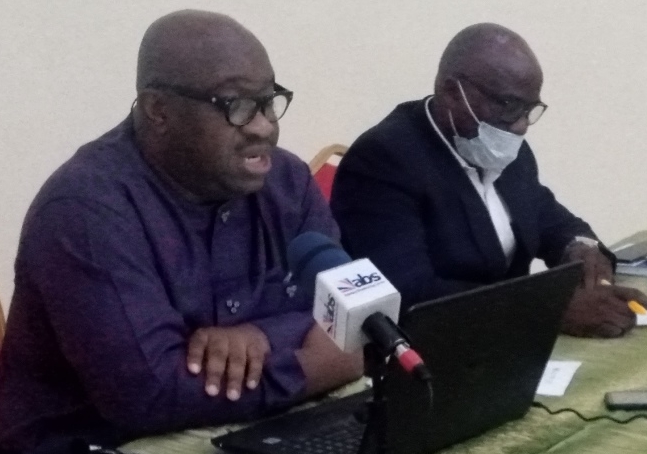
The Executive Director of Media Rights Agenda (MRA), Mr. Edetaen Ojo, has called on Freedom of Information (FOI) Desk Officers of Public Institutions to ensure that the FOI Act works and that members of the public are able to routinely use it to obtain information from Government bodies.
Delivering the Chairman’s Opening Remarks at the opening session of a workshop for FOI Desk Officers of public institutions on the establishment of an online FOI platform, held in Abuja on February 1 and 2, 2022, Mr. Ojo who chaired the session told the participants: “While you may be understandably reluctant to use the FOI Act to seek and obtain information from your own institutions, there are hundreds of other institutions that you can use it to get information from. What is more? You will not be an FOI Desk Officer or even in public service forever.”
According to him, it is in everyone’s collective interest to ensure that the FOI Act works, adding that they should try to improve the ability of members of the public to use the Act to obtain information.
The workshop, which had representatives from over 60 public institutions in attendance, was organized by the International Press Centre (IPC) in collaboration with MRA and the FOI Unit of the Federal Ministry of Justice with funding from the European Union (EU) under component 4b: Support to Media of the EU Support to Democratic Governance in Nigeria (EU-SDGN) Project.
Mr. Ojo noted that as representatives of public institutions, FOI Desk Officers are a critically important sector in the implementation of the FOI Act and their attitudes, as well as understanding of the Act, can make a major difference in its effectiveness.
He said: “We are all united by either a common interest or a common duty to make the Freedom of Information Act, 2011 effective in Nigeria. This workshop gives us an opportunity to exchange ideas about some of the things we can do to achieve that goal.”
Mr. Ojo acknowledged that not all FOI Desk Officers are driven by a passion for Freedom of Information as it may be just a job for some of them and not something that they are really invested in, especially given the fact they “work for government and governments are not famous for their willingness to give out to members of the public any information that they want.”
But he recalled that many years ago, a colleague from the UK who has worked on FOI issues for decades as an activist, an academic and as a Government official, had pointed out to him that “No one is exclusively a Government information officer”.
Mr. Ojo stressed that “Everyone is simultaneously also a citizen, a parent, a consumer of healthcare and other services, a transport user, an employee, etc., who also needs information and potentially also becomes a Freedom of Information user.”
He told the FOI Desk Officers that while they may instinctively believe it to be their duty to protect their institution and possibly view the FOI Act as an intrusion, they should remember that “your institution is just one in hundreds, perhaps thousands, among the government institutions that you may need information from to make personal, professional, business, political or other types of decisions.”





